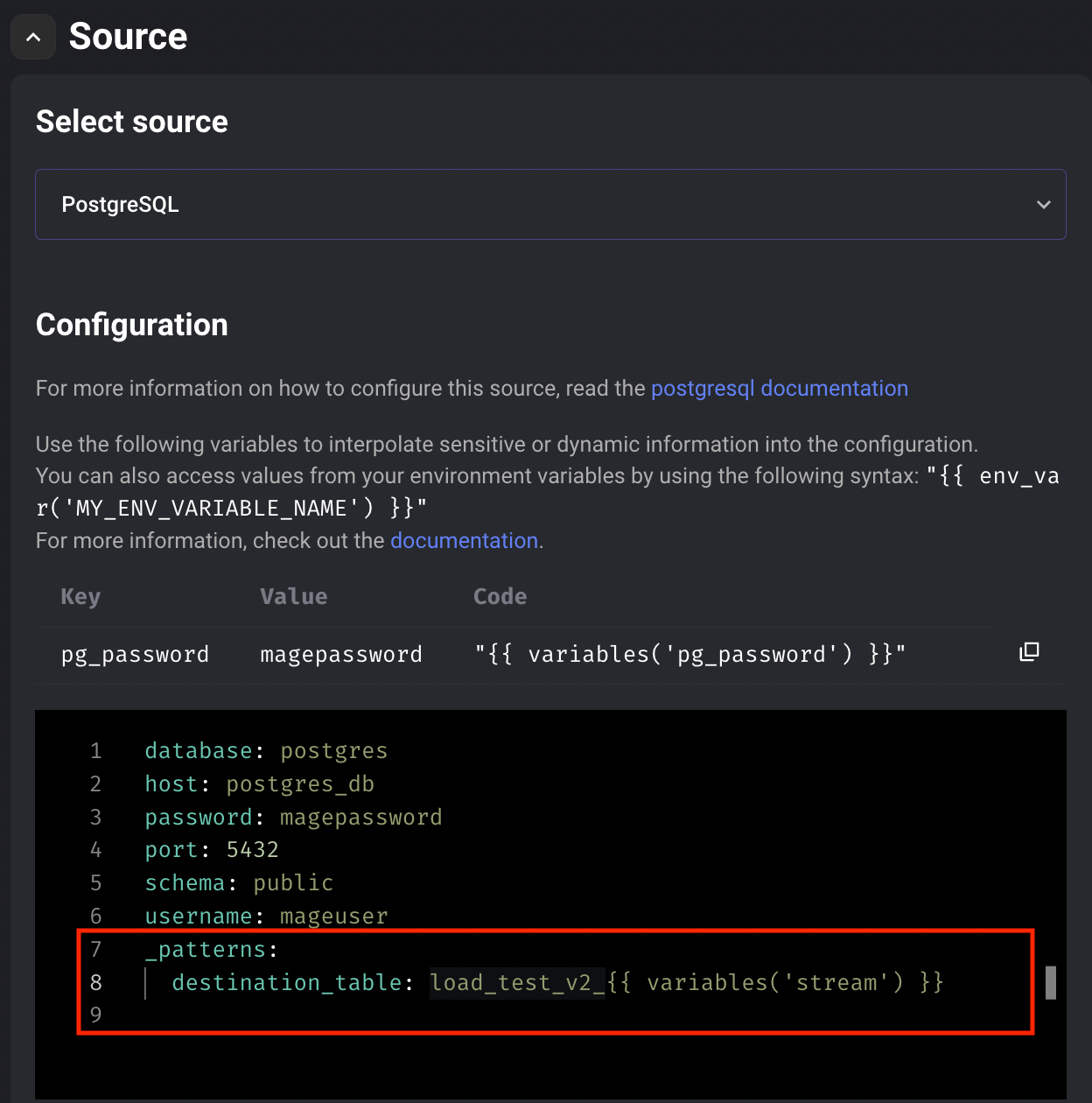
Interpolation
You can interpolate pipeline variables, environment variables, secrets, and more into the source config file, schema settings, and destination config file.Pipeline variables
Variable names
You can add your own custom variables to the pipeline. For more information, read the documentation. Here are the default variables available to interpolate:| Name | Description | Sample value |
|---|---|---|
pipeline.name | Name of the current pipeline. | ETL demo |
pipeline.uuid | UUID of the current pipeline. | etl_demo |
ds | Execution date string. | 2023-12-25 |
hr | Execution hour string from 00 to 23. | 12 |
env | Environment Mage is running in. | dev, prod |
execution_partition | The current partition of the execution: datetime in this format %Y%m%dT%H%M%S. | 20231225T122520 |
Common prefixes
Mage supports table prefixes for integration sources. To add a prefix, add the following to the source configuration for a data integration pipeline: